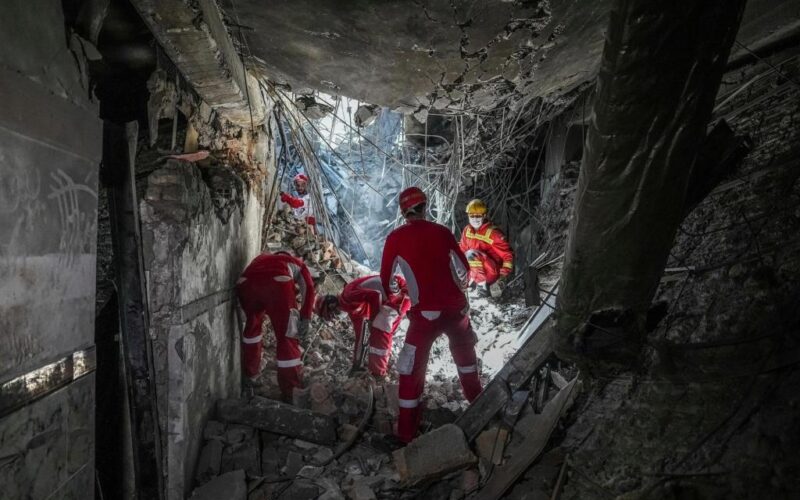By KAREEM CHEHAYEB, Associated Press
BEIRUT (AP) — Human Rights Watch alleged Thursday that an Israeli airstrike on a notorious Iranian prison was “an apparent war crime”, while also accusing Tehran of harming and disappearing prisoners after the attack.
Israel struck Evin Prison in Tehran, one of Iran’s most notorious detention facilities for political activists and dissidents, on June 23, during its 12-day war with the Islamic Republic.
The strikes during visiting hours hit Evin Prison’s main southern entrance, another northern entrance and other areas of the complex, destroying buildings that had medical facilities and prison wards.
The Iranian authorities initially said at least 71 people were killed during the airstrike, among them civilians including inmates, visiting relatives, and prison staff. Iranian media later raised that number to 80. It was unclear why Israel targeted the prison.
Human Rights Watch said the attack was “unlawfully indiscriminate” and that there was no evidence of an advance warning or a military target before striking the prison complex, which it estimates holds over 1,500 prisoners.
“To make matters worse, Israeli forces put at grave risk prisoners who were already victims of Iranian authorities’ brutal repression,” said Michael Page, the rights group’s deputy Middle East director.
Human Rights Watch says prisoners were subject to “ill-treatment and violence” both as they were being taken out of the prison following the attack and as they were returned.
Calls to Iranian authorities were not immediately returned on Thursday, a public holiday in the country. The Israeli military also did not respond to an immediate request for comment on the Human Rights Watch reports.
After the attack, Iranian authorities evacuated and transferred the prisoners to two other facilities in Tehran province and said on August 8 that they were gradually returned. Iranian state media said the prisoners were transferred peacefully and without any conflict.
But relatives and Human Rights Watch said some political prisoners were beaten with batons and “electric shock weapons” for resisting wearing handcuffs and protesting prison guards separating death-row inmates.
The group said some of the prisoners have disappeared, including Swedish-Iranian doctor, Ahmadreza Djalali, who is at risk of execution. The rights group says Iran had refused to give them any information about his whereabouts.
“Iranian authorities should not use Israel’s strikes on Evin prison as another opportunity to subject prisoners, including those who should never have been in prison in the first place, to ill-treatment,” said Page.
The war in June, which killed about 1,100 people in Iran and 28 in Israel, started after Israeli jets struck key nuclear and military facilities. Iran then launched a barrage of missiles over Israel.
Associated Press reporter Melanie Lidman in Tel Aviv, Israel contributed to this report.
Originally Published:








